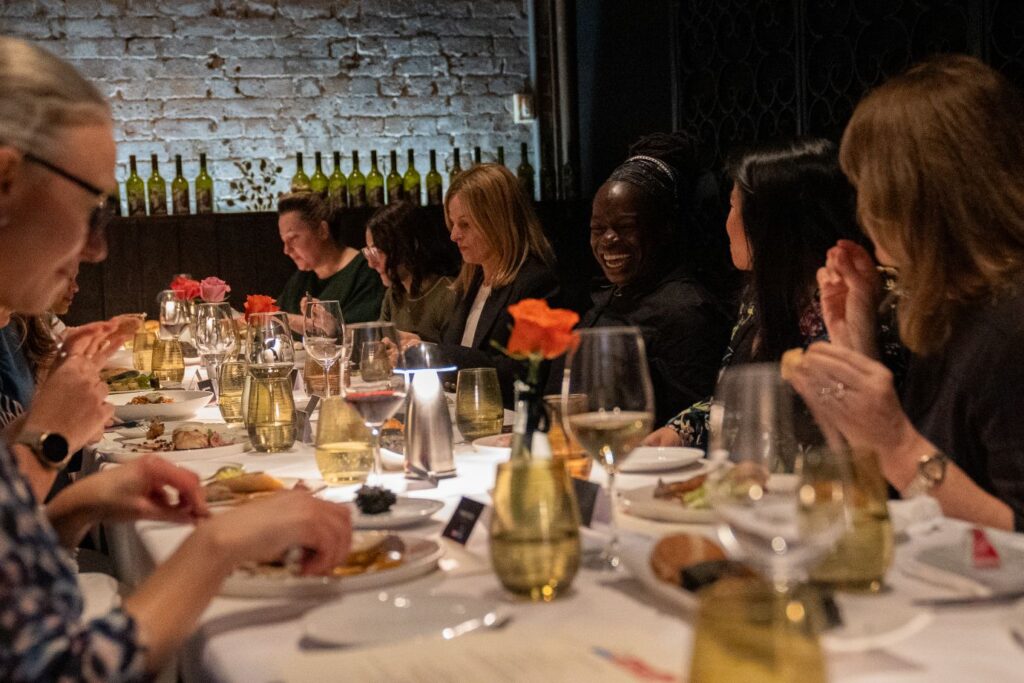This year’s 2025 Women’s Ambition Report by Women’s Agenda revealed the top ambitions women are looking to achieve in the next two years, as well as what women believe could get in the way.
Based on a survey of more than 1,400 women, we uncovered key trends in goals for the two years ahead: 35 per cent of women want to earn more, 29 per cent are keen on seeking a new role, and 21 per cent are chasing a promotion.
But barriers remain entrenched to achieving these goals, with the leading perceived barriers to women’s ambitions including a lack of confidence, concerns about burnout, as well as age and gender discrimination.
To explore these trends and the latest results, Women’s Agenda gathered leaders across different industries, including tech and finance to education, government, and media, for a roundtable discussion on how ambition is playing out in real workplaces, and what structural changes could better support women’s aspirations.
The roundtable was made possible thanks to the support of AGSM @ UNSW Business School, which has supported the Women’s Agenda Women’s Ambitions Survey for the past ten years.
The burnout discussion
One word was prominent during the discussion: burnout.
Nearly three in four women (72%) surveyed said they believed they’d experienced burnout in the past year, driven by long working hours, cost-of-living pressures, and the relentless juggle of career and home responsibilities.
For many at the roundtable, the term provided a helpful shorthand for what might be going on.
However, some warned of its limits, noting that while there’s value in having the language for such challenges, concerns exist about believing it’s inevitable.
Others shared what’s worked for avoiding and dealing with burnout, including setting boundaries, protecting time, learning the warning signs, while also acknowledging how these same protective strategies can lead to missed opportunities.
Redesigning work for the realities of today
Tension between workplace flexibility and visibility was another theme discussed during the roundtable.
Many in the room spoke candidly about how remote work has opened doors, including for parents, caregivers, and neurodiverse staff. However, others warned that working from home may come with costs, such as missed promotions, fewer development opportunities, and exclusion from leadership pipelines.
Concerns were raised about how remote work could limit women’s visibility, as well as its impact on building strong connections.
Participants also reflected on how younger workers, especially women in their first professional roles, face challenges in 2025.
Several shared concerns about how ongoing remote work may affect not only training and mentorship, but also interpersonal connection and long-term well-being.
Others noted the shift in how workplaces function as stabilising forces, especially for people experiencing personal hardship or carrying significant caring responsibilities.
Career breaks and the cost of returning
For women who’ve taken career breaks in the past decade for care-related reasons, our survey found that ambition remains as high as ever.
Forty six per cent said they wanted to grow their leadership career, and 62 per cent want to increase their earning potential.
However, many individuals are struggling to re-enter the workforce and establish a solid career path.
The survey found continued levels of discrimination being experienced around pregnancy, breastfeeding, and requests for part-time work.
Some of the roundtable participants could relate to this experience, with one noting the significant changes a workplace can go through during a career break, including an almost all-female team turning almost entirely male.
Others shared the compounding effect of age discrimination, an ambition barrier cited by 38 per cent of women in our survey.
Communication, empathy and AI
When we presented a list of skills to our 1400 survey respondents and asked which three they’d most be interested in learning over the next two years, more than half (54 per cent) ticked communication.
Meanwhile, 45 per cent ticked empathy and 32 per cent listed resilience – all ranking above technical skills, like data management.
Sharing the findings with our roundtable participants, several noted how these “human” capabilities are increasingly essential in a world shaped by AI, automation, and upheaval.
At the same time, others warned against letting women self-select out of more technical roles, noting that everyone has a role in shaping tech, not just coders, and that inclusive systems require inclusive voices supporting their design.
Ambitions are high. Help women achieve them
Women’s ambitions are as high as ever. However, as our survey has found over the past 10 years, some of the perceived barriers to achieving these ambitions could be overcome by addressing fundamental issues around job design, pay gaps and discrimination, preventing burnout, and enabling learning and development.
Overall, some of the ideas and concerns discussed at the roundtable included:
- The need for positive storytelling around new initiatives employers are exploring to support women’s ambitions
- How employers can balance business realities against staff requests to work remotely
- Why working remotely may support more women, but could be hindering career progression due to a lack of physical visibility
- Concerns around the global trend in employers cutting diversity initiatives
- The additional mental loads many women face, including contending with mental tasks regarding admin, organising and worry for those they care for
- Opportunities in primary and high school education for promoting a greater diversity and appreciation of different skills, especially in technology but also in ethics
- The role of fostering connections for support, friendship and learning and development, and how such connections might be growing increasingly harder to build.
Check out the full 2025 Women’s Ambition Report by Women’s Agenda here.


